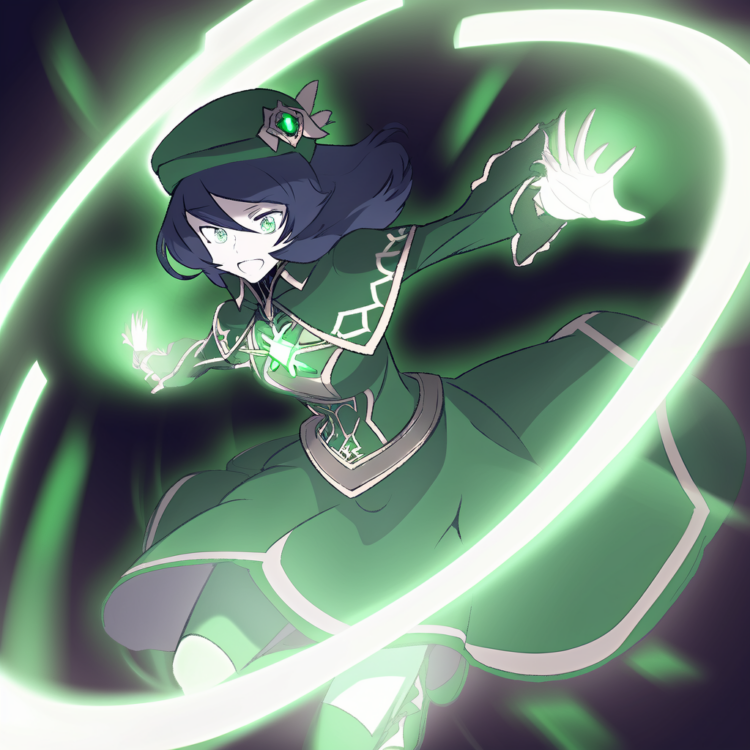Greetings! In my previous blog post, I delved into the concept of multiple intelligences and how they relate to Carl Jung’s theory of the eight cognitive functions. Today, I am excited to introduce you to eight additional intelligences that go beyond the traditional academic definition of intelligence. That’s a total of sixteen distinct personality traits and cognitive skills!
In this post, I have taken the time to map out and explore these eight additional intelligences and their connections to personality traits. These intelligences represent a broad range of cognitive abilities and skills that are essential for success in both our personal and professional lives.
Whether you are an individual seeking to understand your unique strengths and abilities or an organization seeking to better understand your employees, this post offers insights into the many different ways that intelligence can manifest itself.
So, buckle up and get ready to explore the depths of your mind. Who knows, you may even discover a new skill or talent that you never realized you had! I encourage you to read on with enthusiasm and to think about how you can apply these skills to improve your daily life. Oh, and don’t forget to take my cognitive function test!

Tactical Intelligence
Do you have a strong ability to assess and analyze situations? Do you have a natural talent for strategy and planning? Do you find it easy to anticipate your opponent’s next move and adjust your approach accordingly?
Tactical Intelligence is often found in individuals who have low agreeableness (Thinking) and low conscientiousness (Perceiving). This combination allows for quick thinking and critical analysis in situations, giving them an advantage in navigating a situation in a flexible and adaptable manner.
With a keen sense of strategy and an ability to quickly assess and analyze situations, individuals with strong Tactical Intelligence are able to anticipate their opponent’s moves and adjust their approach to stay ahead. They are also able to find creative solutions to complex problems and stay one step ahead of their competition.

What is Systems Intelligence?
Is it easy for you to understand how a robot or systems works?
Do you easily know how to use a tool to solve problems?
Can you use systems and resources to manage your time and make decisions effectively?
It is important to note that “Systems Intelligence” is not an official intelligence identified by Howard Gardner in his theory of multiple intelligences.
However, in describing this as a potential intelligence, it can be said that Systems Intelligence refers to the ability to understand, analyze and manipulate systems and resources to solve problems in an efficient and effective manner. Individuals with strong Systems Intelligence are often Conscientious (Judging) and possess a dominant Thinking preference, enabling them to use tools, processes, and systems to make decisions and solve problems with ease. This intelligence can be valuable in fields such as engineering, management, or technology, where the ability to understand and work within complex systems is crucial.

Artistic Intelligence
Do you find yourself naturally drawn to self-expressive activities like drawing, painting, music, dance, or theater? Do you have a vivid imagination that allows you to see the world in a unique and colorful way? Do you enjoy expressing yourself through personal means like writing, acting or singing?
Artistic Intelligence is one of the intelligences described by Howard Gardner that focuses on the ability to create and appreciate art, music, and other forms of self-expression. People with high levels of artistic intelligence are often characterized by high levels of agreeableness (Feeling) and low levels of conscientiousness (Perceiving).
This combination allows them to be open-minded, spontaneous, and flexible in their approach to creative expression, which in turn can allow them to connect with others on a deeper level and evoke powerful emotions and experiences. Whether it’s through the visual arts, music, dance, theater, or any other form of self-expression, those with high levels of artistic intelligence are often able to connect with others in a way that is both human and beautiful.

Ethical Intelligence
Do you find it easy to determine the right or wrong way to do something? Do you often have strong feelings about what is just and unjust? Are you someone who tries to live a life guided by strong ethical principles?
Individuals who have strong Ethical Intelligence are often those who score high in both Feeling (High Agreeableness) and high Judging (Conscientiousness). People who are strong in these two traits are generally more sensitive to the emotions of others and more internally motivated to maintain good ethical standards in their own lives. These types will often discipline themselves and their behaviour to be more agreeable or compassionate, and can compromise their own feelings to support the group.
They are often guided by a strong moral compass and are committed to doing the right thing, and avoiding actions that may cause harm to others. This intelligence is useful in many fields, such as law, social work, and counseling, where individuals must consider the ethical implications of their actions and make decisions that are both fair and equitable.

Logistical Intelligence
Do you find it easy to know how much you need to do and when you need to do things? Can you easily plan your calendar and schedule? Do you have a good sense of how to get from one place to another?
Logistical Intelligence, also known as Practical Intelligence, is the ability to effectively plan, organize, and execute tasks in a timely manner. It is connected to people who are strong in Sensing (Low openness to experience) and high Judging (Conscientiousness), meaning they are generally self-disciplined and good at structure.
They are able to navigate from one place to another with ease, plan and prepare for events, and have a good sense of time management. This type of intelligence is proper in fields such as business management, project management, and event planning. People who have strong Logistical Intelligence are able to effectively prioritize tasks and use their practical skills to make things happen.

Bodily-Kinaesthetic Intelligence
Do you have strong instincts when it comes to movement and physical activities? Do you enjoy physically engaging with the world around you? Do you have a good sense of timing and coordination?
Bodily-Kinaesthetic Intelligence is the ability to use one’s body effectively and efficiently to perform physical tasks. It is connected to low Openness to experience (Sensing) and low Conscientiousness (Perceiving), meaning that people with this intelligence are often spontaneous and adaptable.
They don’t overthink things and are able to connect with the moment, allowing them to think quickly on their feet and have an awareness of their body and physical experiences. This intelligence is highly valuable in careers such as athletes, dancers, actors, and manual labor jobs. By using their instincts, timing, and coordination, these individuals excel in these fields and bring a unique perspective to the table.

Future Intelligence
Future Intelligence is the ability to understand, predict and shape the future in a creative and visionary way. It is the ability to see the big picture and to think ahead, beyond current realities, to create a more positive and innovative future.
Do you find it easy to anticipate what might happen in the future and to prepare for it accordingly? Do you tend to think about how the world might change in the coming years or decades, and what implications this might have for society, the environment, or technology? Do you find it easy to plan and organize your life with a long-term vision in mind?
People who are strong in both Intuition (High openness to experience) and Judging (Conscientiousness) tend to have Future Intelligence. They are able to think deeply about the future, to see the potential implications of current events and trends, and to plan ahead to minimize negative outcomes or maximize positive ones. They are often good at visualizing new and innovative ideas, and have a natural talent for imagining new possibilities and imagining the future in a creative and imaginative way.
These individuals are often visionary, strategic and long-term thinkers, and their strong intuition and capacity for foresight can be incredibly valuable in many fields, from business and innovation to environmental activism and urban planning. With their ability to anticipate the future and think ahead, they can help to create positive change and a better world for all.

Creative Intelligence
Do you find it easy to think of new options or alternatives? Do you enjoy brainstorming and coming up with unique solutions to problems? Do you often find yourself thinking outside the box?
If you answered yes to these questions, then you may have strong Creative Intelligence. This type of intelligence is often connected to individuals who are strong in Intuition (High Openness to Experience) and Perceiving (Low Conscientiousness). These individuals tend to be good at generating new and creative ideas and approaches. They have a free-flowing imagination and are open to taking risks, which can help them find innovative solutions to problems. Whether it’s in the arts, business, or problem-solving, having strong Creative Intelligence can be a valuable asset in many different situations.
Take the cognitive function test and discover your strongest intelligence!
Are you ready to unlock your full potential and understand your unique strengths and skills? Take the time to explore your cognitive functions and intelligences by taking my comprehensive test. By doing so, you’ll gain a deeper understanding of how your mind works and how you can leverage your natural talents to achieve your goals.
So what are you waiting for? Take the test today and start harnessing the power of your mind!

